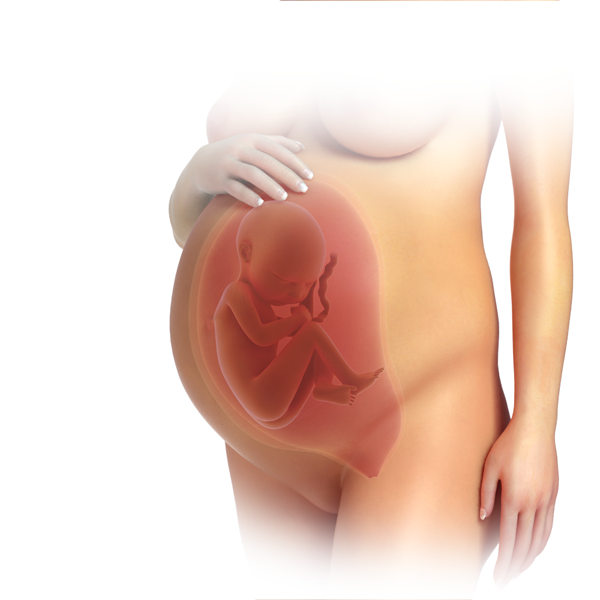Week 32: Time to think about whether or not you'd like to have narcotic pain relief during labor. Find out how narcotics work, what they feel like, and how much pain relief you can expect.

-
Heartburn and shortness of breath is common now that your uterus is pressing against your diaphragm. To help, lift your arms over your head and breathe as deeply as you can, down to the bottom of your lungs. It's also important to watch posture now: Keep your shoulders back and down away from your ears, keep your chin tucked and your chest proud.
-
Have you taken a tour of your birth place yet? Now is time to get comfortable with where you'll have your the baby.
-
The hormone relaxin helps your pelvic joints become looser and softer, which is beneficial for childbirth. If you notice your knees and hips beginning to ache, that's also normal. It may be time to think about adding strengthening and stretching to your normal daily activities to address these new aches and pains.
-
Do you have a massage school in your town or city? Call to find out if they need pregnancy models to train students on working with pregnant women. What a great way to get a free massage!
-
When discussing options and negotiating your choices with your healthcare provider, many women use the BRAIN model of informed consent to help them decide what to do: Benefits-Risks-Alternatives-Intuition-Nothing
-
Fentanyl is a commonly used narcotic for women wishing a little pain relief in the middle part of labor. Narcotics given in active labor make contractions feel shorter and create the illusion of more time in between contractions.
Pregnancy, Childbirth and the Newborn
-
The risks of narcotic pain relief in labor include: Potentially slowing labor if given too early; dizziness, nausea, vomiting and itching; disorientation and hallucinations; baby may be drowsy and have slower reflexes for a few days after birth. Narcotic pain relief helps contractions feel shorter, but not less intense.
Pregnancy, Childbirth and the Newborn
BirthWatch Recommends:
Birthing From Within: An Extra-Ordinary Guide to Childbirth Preparation
Yes this book was first published in 1998, but it's one of the best out there addressing the spirituality of giving birth. Birthing From Within offers concrete exercises for mentally and emotionally coping with labor pain. This is a classic (even if it's on the woo woo side of things). If you've been all left brain oriented about your pregnancy and childbirth up to this point, give this book a try. You'll likely find it quite soothing and comforting.
